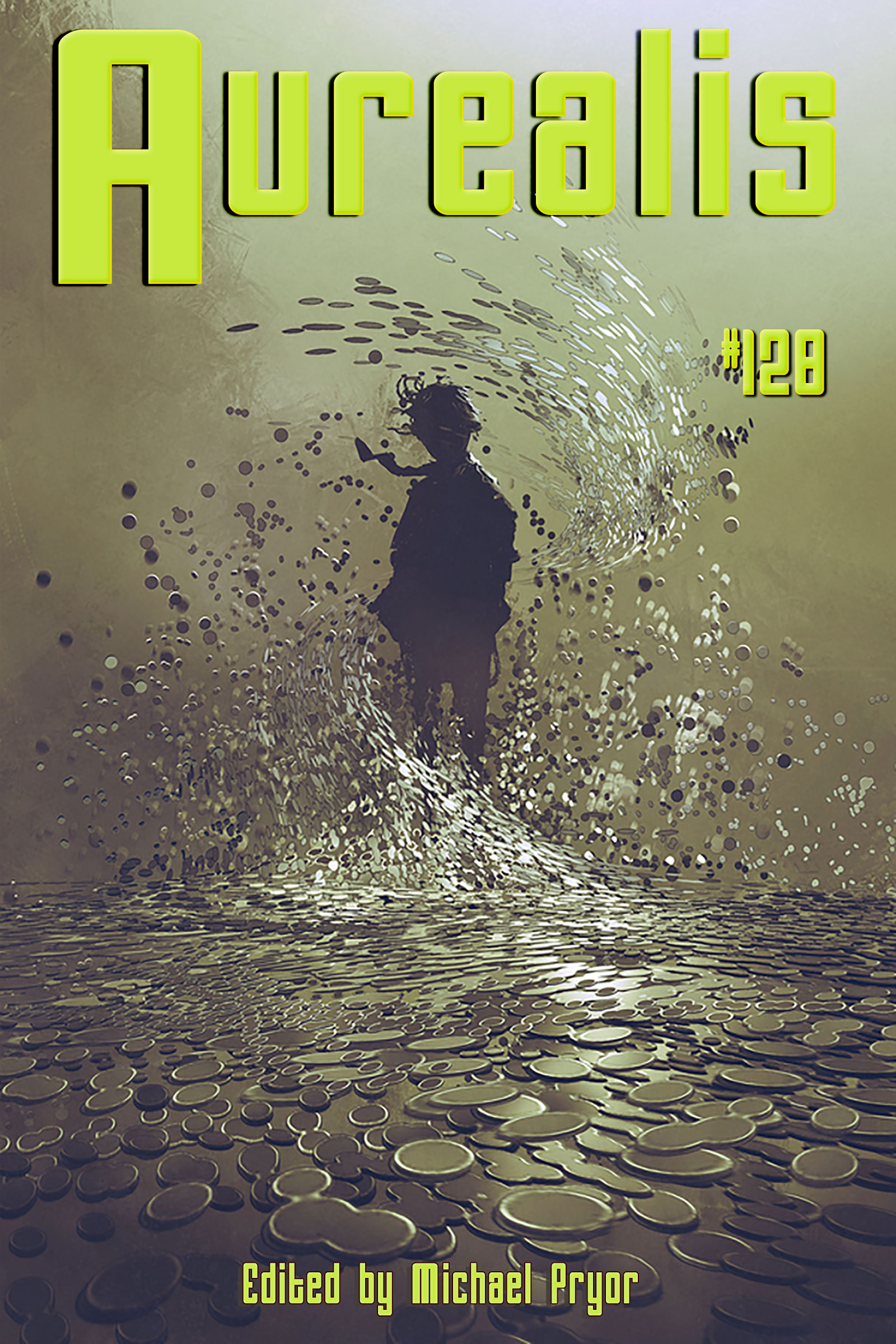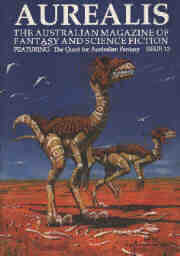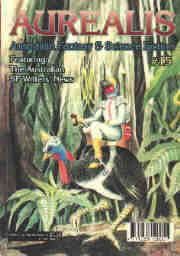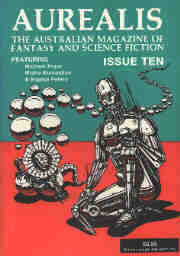Aurealis #128
$3.99
2020 marks thirty years for Aurealis! Happy Anniversary Year to us!
Aurealis #128 has the dreamlike Head Below Water from Azlïn Auckburally, the alarming Selfie from Kat Clay and the punchy Tezcatlipoca from Patrick Hurley—plus top quality non-fiction from Gillian Polack, Matthew Harrison and Tim Hawken.
And, of course, we have our sprightly Reviews department and stunning artwork.
Aurealis – you ought to be congratulated (wait until they read it!).
All Aurealis store prices are in USD
- From the Cloud — Michael Pryor
- Head Below Water — Azlïn Auckburally
- Selfie — Kat Clay
- Tezcatlipoca — Patrick Hurley
- CONQUIST Part 2: Under a Crimson Sky — Dirk Strasser
- An Introduction to Australian Timeslip Novels — Gillian Polack
- AI and the Totalitarian Future — Matthew Harrison
- What Makes Good Horror? — Tim Hawken
On the 29th of November 2018 C S Lewis would have been one hundred years old. The much-loved fantasist was a thoughtful writer, one who looked closely at the craft. Below is some shrewd advice that is still as fresh and helpful as it was when he wrote it in 1956. Writers out there, pay attention!
- Always try to use the language so as to make quite clear what you mean and make sure y[ou]r. sentence couldn’t mean anything else.
- Always prefer the plain direct word to the long, vague one. Don’t implement promises, but keep them.
- Never use abstract nouns when concrete ones will do. If you mean ‘More people died’ don’t say ‘Mortality rose.’
- In writing. Don’t use adjectives which merely tell us how you want us to feel about the thing you are describing. I mean, instead of telling us a thing was ‘terrible,’ describe it so that we’ll be terrified. Don’t say it was ‘delightful’; make us say ‘delightful’ when we’ve read the description. You see, all those words (horrifying, wonderful, hideous, exquisite) are only like saying to your readers, ‘Please will you do my job for me.’
- Don’t use words too big for the subject. Don’t say ‘infinitely’ when you mean ‘very’; otherwise you’ll have no word left when you want to talk about something really infinite.
Source: C S Lewis Letters to Children, ed. Lyle W Dorsett and Marjorie Lamp Mead, Collins, London 1985.
All the best from the cloud.
Michael Pryor
From Head Below Water by Azlïn Auckburally:
Someone killed the Sun yesterday. I know because the light was too thin when it rose, unable to illuminate anything in its full beauty. What I can see is wrong, but I can’t remember what it should be like. I remember other things just fine though, so Memory must be alright, sheltered wherever he ran after the war.
From Selfie by Kat Clay:
The photo in the mirror won Amber the trip.
Hashtagged #beyourself, she’d posted about her body struggles. Cause it’s hard being an influencer, keeping up with the latest trends, on top of your social posts and your figure. Her body reflected in the mirror, light streaming through the curtains, the hint of the white beach and aquamarine water behind. Her naked torso, twisted waist, hi-cut underwear, her body reaching as if for something in the mirror. This is me, no makeup, fresh out of bed.
From Tezcatlipoca by Patrick Hurley:
The kid didn’t tap the old man on the shoulder because, in prison, that was a good way to get a shiv in the gut. Instead, from a respectful distance, he cautiously called out the old man’s name.
From CONQUIST Part 2: Under a Crimson Sky by Dirk Strasser:
Cristóbal battled with his doubts even as he made furious love to Sarpay, pushing into her as if somehow it would give him the answers he sought.
From An Introduction to Australian Timeslip Novels by Gillian Polack:
Timeslip may be fashionable or it may be unfashionable, but it seldom disappears entirely from our novels and short stories. I don’t want to delve into its early days here, or the way it takes on the needs of a region when it’s written in a region. In such a brief article, I can’t even give you a thorough exploration of just the Australian timeslip novels. There are a lot of them. Timeslip is important to stories told in English.
From AI and the Totalitarian Future by Matthew Harrison:
From H G Wells’ 1895 novel The Time Machine onwards, science fiction’s visions of the future have often been authoritarian. Wells extrapolates from the class system of nineteenth century Britain to a future where the underclass has evolved into a separate species, the Morlocks, who labour for the privileged and effete Eloi and, in a nightmarish twist, eat them.
From What Makes Good Horror? by Tim Hawken:
I used to think horror was like art—you knew it when you saw it. Helping to judge the Australian Shadow Awards last year changed that. While the other panel members and I were provided with some existing criteria to judge by, we nevertheless found ourselves debating whether some entries were ‘horror enough’ to be considered for the award. Were some simply fantasy fiction with dark elements, or YA with a little bit of bite? This was even before we’d discussed whether the books were actually any good or not. I’m confident we got the short list and eventual winner right in the end, since Kaaron Warren’s Tide of Stone (2018) also won the Aurealis award for best horror novel.





